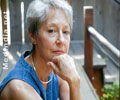Chances of facing problematic hot flashes at night-time may escalate up with a sedentary lifestyle in women of menopausal age.
- Menopause is the natural and permanent cessation of menstrual cycles (periods) in women between the ages of 40 and 55
- The risk of night-time hot flashes is found to be more in women with a sedentary behavior
- Hot flashes, in turn, increase the risk of cardiovascular diseases in women
- As hot flashes are one of the most commonly encountered menopausal symptoms, identifying their precipitating risk factor is key to efficient management
Do you tend to spend countless hours sitting on the couch with a sedentary lifestyle? If yes, and you are a midlife woman, then your chances of facing problematic hot flashes at night-time may escalate up as per a study at the Cleveland, Ohio, to be presented at The North American Menopause Society (NAMS) Annual Meeting in Washington, DC. What is Menopause?
Menopause is defined as the natural biological state of permanent cessation of menstrual cycles (periods) in women between the ages of 40 and 55. It is caused by reduced levels of a female hormone – estrogen that is produced by the ovaries (female reproductive organ).
Women, by birth, have all the eggs (ovum) they will ever carry. These eggs are gradually lost with age. Hence, menopause is the condition where almost all the eggs are lost due to hormonal variations that substantially reduce natural fertility.
Read More..
What is Menopause Transition?
Menopause is thereby defined as that crucial time point of at least 1 year of cessation of menstruation. Menopause transition thereby refers to the stage of entering into menopause, otherwise called perimenopause.
During perimenopause, the women’s reproductive organs – ovaries start to gradually diminish the production of female reproductive hormone – estrogen.
As a result, the body starts to manifest some menopausal symptoms like hot flashes. However, menstrual cycles continue at this stage, and women can still get pregnant during the menopause transition.
Stages of Menopause
- Perimenopause - The regular menstrual cycle of a woman starts becoming irregular commonly around the age of 47 years. It can even start 8-10 years before menopause.
- Menopause - The stage when there is complete cessation of menstrual cycles due to a halt in the production of female hormones – estrogen and progesterone. Women have their final menstrual period at this stage.
- Postmenopause – The aftermath period of menopause is accompanied by varied physical and psychological changes.
Characteristics of Menopause
Some of the symptoms of menopause are:
- Increased mood swings
- Reduced sexual drive
- Hot flashes
- Vaginal soreness & dryness
- Dyspareunia or Painful sex
- Palpitations
- Sweating
- Difficulty in sleeping
One of the most frequent symptoms of the menopause transition and menopause is hot flashes. Apart from interfering with a woman’s quality of life, it is also related to a collection of health glitches.
Study Data
Several studies have been conducted in the past to analyze the effects of sedentary behavior on hot flash experience. However, they were based principally on self-reporting of the patients and no specific objective measurements of their sedentary behavior or hot flashes were done.
To overcome the existing hurdles, the present study enrolled women in their pre-, peri-, and postmenopausal state through an experimental approach.
The study analyzed the correlation between the objectively measured sedentary behavior and objective and subjective hot flash experience.The study further anticipated exploring if sedentary behavior is a unique predictor of hot flash experience.
“Since women near the menopause transition spend a large portion of their daily activities in sedentary behaviors, it’s important to understand how such behavior influences menopausal hot flashes. Knowledge regarding the influence of sedentary behavior on hot flashes can improve evidence-based lifestyle recommendations for women experiencing hot flashes,” says Dr. Sarah Witkowski, an exercise physiologist at Smith College and co-author of the study.
Sedentary Behavior and Data Validation
It was found that the risk of night-time hot flashes could be more in women who follow sedentary behavior.Thus, the sedentary behavior was indeed able to predict night-time objective hot flashes, independent of time spent partaking in the moderate-to-vigorous activity.
“With such a large portion of women affected by hot flashes, research that helps identify triggers or risk factors is always valuable. Healthcare professionals should review a patient’s physical activities and routines when discussing treatment options,” says Dr. Stephanie Faubion, NAMS medical director.
Addressing these factors may help in better management of the menopausal symptoms in these women.
Facts on Menopause
- Around 4% of women attain early menopause before the age of 45 or 40 years
- Physical activity and nutrition may play a role in the timing of menopause for all women.
- The age at which a woman attains menopause is a significant factor to predict fertility and other health impacts among them.
- Common symptoms like hot flashes, night sweats, depression, and sleep disturbances may serve as contributing risk factors to cardiovascular diseases, especially in women who enter menopause at an earlier age.
- Women who drink little to moderate amounts of alcohol may have a later onset of menopause.
- Smoking cigarette predisposes women to earlier menopause about a year earlier, when compared to non-smokers.
- Data indicate that only 7.2% of women in menopause meet physical activity guidelines, and fewer than 20% of those women consistently maintain a healthy diet.
- There are about 290 genetic variations that are recognized to influence the reproductive lifespan (menopausal age) in women
References:
- A Sedentary Lifestyle Can Lead to More Nighttime Hot Flashes - (https://www.menopause.org/docs/default-source/press-release/sedentary-behavior-and-hot-flashes.pdf)
- Menopause Overview - (https://www.mayoclinic.org/diseases-conditions/menopause/symptoms-causes/syc-20353397#:~:text=Menopause%20is%20the%20time%20that,is%20a%20natural
%20biological%20process.) - The North American Menopause Society - (http://www.menopause.org/)
- Menopause, Perimenopause and Postmenopause - (https://my.clevelandclinic.org/health/diseases/15224-menopause-perimenopause-and-postmenopause)
Source-Medindia














